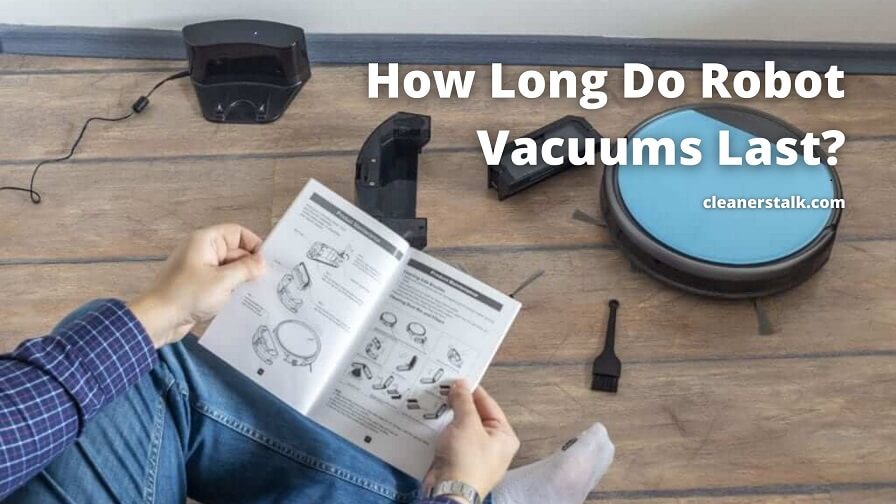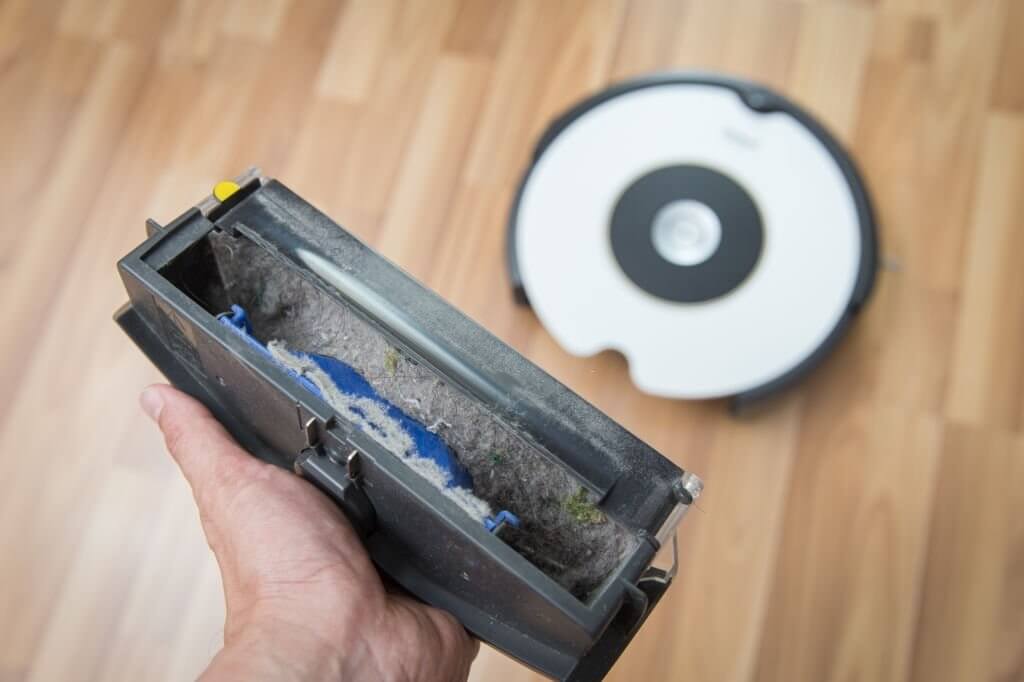
How Long Do Robot Vacuums Last?
Cleaners Talk is reader-supported. This post contains affiliate links, we may earn a commission at no additional costs to you. As an Amazon Associate we earn from qualifying purchases.
Robot vacuums have been doing a lot of dirty work for more quite some time now. And with the latest robot vacuums that can empty its own dustbin, some models can now go months before needing a human touch at all. But since robot vacuums are considered new technology, no one is quite sure how long they should last.
How long do robot vacuums last? Robot vacuums can last between 5 to 8 years. However, these numbers depend greatly on the model and the workload of the robot vacuum itself. Generally, regular robot vacuums have a lifespan of about five years, while high-end models can last around eight years.
With that said, there is a lot to consider when deciding the lifespan of robot vacuums. Some models may even surprise you and stop working for no apparent reason. In this post, we will answer the questions: how long do robot vacuums last and how to make them last longer. Let’s get started.
How Long Do Robot Vacuums Last?
Considering you buy a robot vacuum from a reputable brand like the iRobot Roomba or Neato Robotics, a robot vacuum cleaner should be able to last between five to eight years. These numbers, however, will vary depending on how much cleaning it does and how well you maintain the device.
You Get What You Pay For
When it comes to robot vacuums, you get what you pay for. Sure, you can hunt for cheaper robot vacuums in the marketplace, but most of them may not last long. Moreover, cheaper robot vacuum brands do not even offer replacement brushes and batteries, thus rendering them disposable.
While robot vacuums are relatively expensive, they can be considered investments. At the end of the day, you are paying for the convenience it brings. For instance, most robot vacuums come equipped with Wi-Fi now, so that you can schedule and control them simply from an app on your smartphone.
A few of the newest robot vacuum models are also voice-enabled. And with the latest innovation, some robot vacuums can even empty its own dustbin and can go months before needing human touch at all. However, all machines need regular maintenance from humans to last as long as possible.
How to Make Robot Vacuums Last Longer?
While you can stretch the lifespan of newer robot vacuum models closer to 10 years, it greatly depends on how much you use and maintain them. After all, you need to take care of them before they take care of you. Here are some things that you can do to make your robot vacuum cleaner last longer:
1. Clean the Brush Often
Arguably the most important thing you can do to make robot vacuums last longer is to clean the brush often. A robot vacuum’s motorized brush can become tangled in hair, string, and other fibers, especially if you have kids and pets. Make sure that the brush is in tip top shape and it should work for years to come.
The quickest and easiest way to clean the brush is to snip the tangled hair with a pair of scissors. After you have snipped the hair, simply use your hands to pull any hair, string, and fibers from the brush roller. However, be very careful to not damage the soft bristles when cutting any entanglement.
2. Clean the Filter Regularly
Robot vacuums are equipped with filters to protect the motor from dust and dirt, as well as preventing fine particles from being released back into the air. When the filter is dirty, it may clog the robot vacuum’s airflow, putting it at risk of damage. Remember to clean the filter regularly to promote better performance.
It is important to note, however, that most robot vacuum filters are not designed to be washed or come into contact with liquid. Any contact with liquid may ruin the filter and could cause damage to the robot vacuum. To clean the filter, simply shake off any debris by tapping the filter against a trash can or container.
3. Empty the Bin Frequently

Emptying the bin regularly helps a robot vacuum perform well.
Last but not least, do not overfill the dust bin. It is important to not let the bag or bin get filled to the brim. Optimally, you need to empty the bin after each cleaning run. To empty the dustbin, simply remove them from the robot vacuum unit and empty the contents to a trash can. You can also wipe the bin with a dry cloth.
Besides clogging the robot vacuum’s inner workings, including its motor, a dirty dustbin can cause harmful particles to go back into the air you breathe. By doing the three above tips often and regularly, you should be able to have your beloved robot vacuum up and running as long as it should.
Can Robot Vacuums Go the Distance?
Since robot vacuums are considered new technology, nobody can decide for certain how long they should last. If somehow, your beloved robot vacuum died on you suddenly, take it easy, you are not alone. Cheaper models from questionable brands have been known to stop working for no apparent reason at all.
Even with an average lifespan of 5 to 8 years, robot vacuums are still nothing compared to the reliable canister vacuums of old. Some models are able to sustain 20 years of solid, hard work before finally going to sleep for good. Even today, canister vacuum cleaners are expected to last around two decades.
Some robot vacuums run on rechargeable lithium batteries. And just like smartphones, it is recommended to replace the batteries once every two to three years to keep it running smoothly. Additionally, regular maintenance from your end will hopefully keep it healthy until more durable robot vacuums are invented.
Related: How much electricity robot vacuum uses
Bottom Line
And there you have it, a short and concise post to answer: how long do robot vacuums last? By choosing the best models available and applying regular maintenance, you should be able to make any robot vacuum last longer. At the end of the day, we should be thankful that robots are here to make your life easier. 🙂
You may also want to read our comparison reviews:
